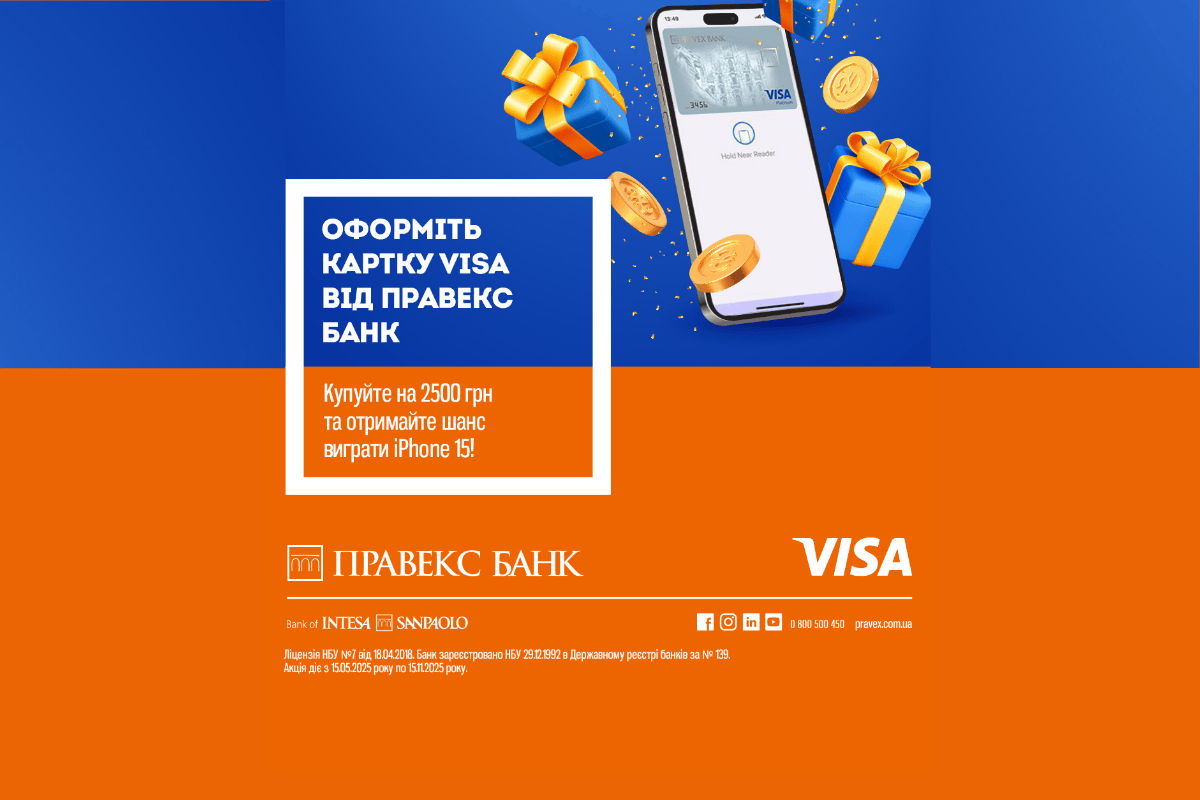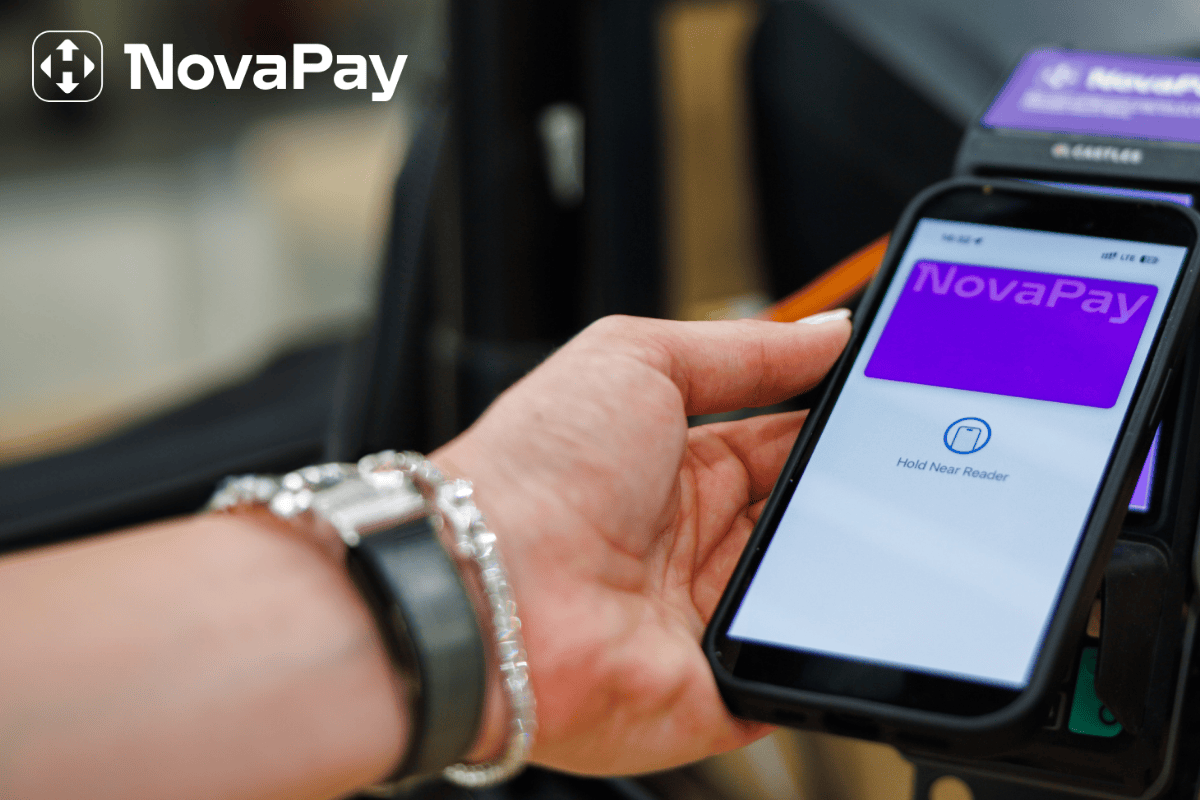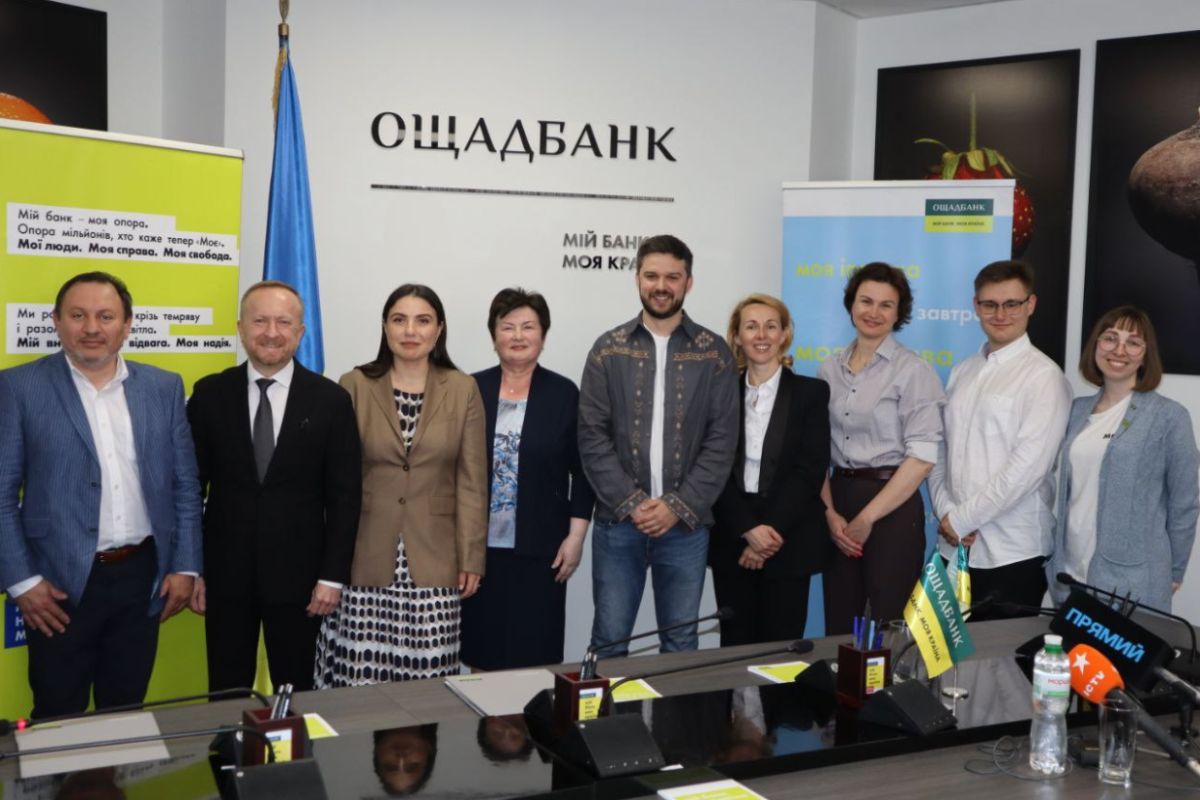AUB partners news
On May 23, KA Group held the 17th PEOPLE MANAGEMENT CONFERENCE in Kyiv in the face of challenges, turbulence and permanent uncertainty. This time we sought answers to the main question: how to see people in a strategic dimension? 17' PEOPLE MANAGEMENT CONFERENCE is a strategic event for HR and leaders who are shaping a new map of competencies and business that grows through people.

This year, the HR conference from KA Group celebrates its 10th anniversary, so it was held with special inspiration and a special update in the format - ANTI-training on the topic of conflicts in teams.
And the PEOPLE MANAGEMENT CONFERENCE was supported by general partners - MHP, robota.ua and the official partner INGO.
The conference organizers developed a difficult task - to gather HR experts, managers, leaders who manage people at a time when the very term "normality" is on pause. KA Group is important to be Ukrainian, which is what HR, managers and employees are dealing with in conditions of war, turbulence, personnel shortage and employees from 5 generations in one office.
Evgeniya Blyznyuk, sociologist, founder and CEO of Gradus Research, prepared a study specifically for the conference on the level of employee burnout according to industry, type of company, management, and even depending on gender and duration of work in the team.
So, the fewer employees you have in your company, the higher its eNPS. Newcomers look at you with optimism, but it quickly evaporates, especially if the schedule is tight, the manager is indifferent, and the team is “closed”.
At the conference, Evgeniya shared these studies:
● a performance schedule is a top factor of attractiveness for young people;
● eNPS falls among those who work part-time;
● a hybrid model is better for all extremes;
● international companies lead in employee loyalty;
● “difficult” newcomers are not a sentence, but a point for the development of HR approaches.
Olga Gorbanovska, executive partner, head of the People Advisory Services practice at EY Ukraine, clearly articulated that every transformation is a small or large stress test for the company.
And somewhere in the process there is always the same turning point. It is in his team that it either bursts at the seams or goes through it strong. Those who manage to notice this moment survive. Companies that have trained managers who are able to provide psychological support thrive.
And HR trains these managers, so today they are a key factor in the stability of the team in a minimal world. Therefore, teach managers to feel the team, stop in time and act accurately.
HRD & CEO - where is the line between trust, responsibility and common sense? This discussion is like apt psychotherapy for business. Six experienced managers honestly talked about who is to blame for what in the HR and CEO tandem, and how to build cooperation without drama.
The main insight of the discussion: HR is not just about people, but about business through people. Caring is not an additional expense, but daily operational work. The CEO trusts HR when it speaks the language of numbers, not assumptions (Evgenia Kuzminska).
HR should stop putting out fires in the shadows and become a strategic partner for business. After all, the mood of HR teams sets the climate for the entire company.
As moderator Roman Bondar summed up: trust is built on a systematic and strategic approach, not on 24/7 heroism.
The CEO wants to see HR not as a magician, but as a player who knows the business and turns caring into results.
Changes are not a solo, but a jam session and lindy hop. Olena Zhiltsova, founder of the "School of Management Thought" and co-author of the book "Soft Skills: Being Yourself" is convinced that even the most pumped-up manager cannot single-handedly smooth out the turbulence of the modern world.
Because real answers to complex challenges are not born in the head of one genius, but in the team's dialogue. "Everything rests on our ability to cooperate. Problems are now interdisciplinary - and the answers must also be shared," - says Olena.
But there is a nuance. If the team has not provoked talk about changes, it cannot project them. Without preparation, there will be neither constructive nor breakthrough.
Therefore, the challenge for a leader is not just to come up with a new strategy, but to teach the team to be its co-author.
AI does not get tired, does not forget and is not late. But in order to work with it harmoniously, you need to "invite to the dance" correctly, - noted Iryna Gnutova, HRD Comfy and a well-known expert in artificial intelligence in Ukraine.
From the description of the vacancy and analysis of the resume to maintaining internal channels, creating tests and even... preparing for the interview, it is worth entrusting an AI assistant.
To get set up for collaboration with AI, Iryna recommends 4 simple steps:
● Set the role – who is it: recruiter, copywriter or interviewer?
● Describe the context – why are you doing this?
● Give clear instructions – what exactly needs to be done?
● Ask for clarification – “how did you understand me?” or “what else do you need?”
Renata Delporte, Senior Vice President of Global HR Business Partner at SoftServe, in an offline podcast with SEO KA Group Lana Mitchenko, said that we risk working in the HR department of the 90s, where well-being, training and facilitation are considered “outdated”.
She also warned that a manager who has subordinates is most hindered by one quality. When he happens to have a team. This bright mind that wants to solve all the problems and then throw away the decisions in the team is the worst thing that can happen. People feel unnecessary, uninteresting.
A "bright mind" that wants to win everything on its own (make a strategy, hire the right person) and simply inform the team is the way to lose trust and motivation. People want to be needed, not listeners of a monologue.
In modern business, people are not just a resource, but the main development strategy. How to train, motivate and not lose those who are not yet at the top, but are already nearby? Where to start with a new competency map, advanced training and retraining?
Here are the most interesting thoughts from the discussion about the new competency map in 2025 and the team of the future.
The mature generation needs to be taught to teach - it is not just a transfer of knowledge, but a mutual upgrade. Forget Soft Skills - now Power Skills: how much energy you put into your work and how it shows your uniqueness.
The 70-20-10 formula works perfectly: 10% - trainings and books, 20% - conferences and networking, 70% - practice in the workplace. It is in real tasks that skills grow best.
When people are not afraid to change positions in the company, they stay. This is a sign that the workplace is not a dead end or a sentence.
“Motivation in business is this internal engine that cannot be borrowed or given away,” - knows and practices this experience psychotherapist, expert in crisis psychotherapy Elena Platova. Envy and gratitude are two sides of one powerful destructive force of development. They create that special emotional charge that helps people strive for more. But motivation is not "flooded" by illness, it cannot be "planted" through trainings or bonuses.
Oksana Smilka, Founder of TwoCo and COO of Scalr, and Olena Taranenko, Chief Communications Of
Card restrictions introduced to prevent abuse and illegal activities through the P2P transfer mechanism are still in effect in end-user commercial banks. And from June 1, 2025, new rules for card transfers will come into force: the limit for medium and low-risk clients will be reduced from UAH 150,000 / month to UAH 100,000 / month, while for high-risk clients it remains at UAH 50,000 / month.
Currently, the state bank applies restrictive measures in case of atypical activity on a card account or exceeding the transfer limit. First of all, the bank can block an account that it considers suspicious.

Maryna Pavlenko, a leading expert in financial monitoring at GLOBUS BANK, explained in detail the mechanism for unblocking an account, and also provided some tips on how to avoid unwanted card blocking.
If a client receives a notification about blocking an account or cannot make any transactions (for example, pay for purchases in a store), she will not be overjoyed and will now contact the bank through any available communication channel.
"After the application, the bank may ask the client to provide documents confirming income or explanations regarding the card. It is important that the client understands such requirements," the banker noted.
In some cases, after providing explanations and documents, the client's access to the account is restored. If the information provided is insufficient or does not explain the essence of the transactions, the client is likely to change to another banking institution.
"In this case, the client himself initiates the transfer of available funds from the account," the specialist emphasized.
The bank also has the right to terminate business relations with the client on its own initiative and close the account (in accordance with Article 15 of the Law of Ukraine “On Prevention and Counteraction to the Legalization (Laundering) of Proceeds of Crime, Financing of Terrorism and Financing of the Proliferation of Weapons of Mass Destruction”). In such a case, the bank shall notify the State Financial Monitoring Service of Ukraine.
If the account is closed on the initiative of the bank, the client must provide the details of another account in any bank to transfer the remaining funds. It should be noted that the bank may charge an additional commission - its amount is established by each bank separately. Information about this is published in advance on the official websites of banks in order to avoid misunderstandings.
"Commercial banks are interested in ensuring that their clients are as informed as possible — "armed" with knowledge on how to avoid account blocking. In addition, there is a "Know Your Client" strategy, which makes it possible in atypical situations — for example, strong card activity that does not correspond to confirmed income — to contact the client for clarification. I want to emphasize: banks are not interested in losing clients. They are not punitive bodies. Our task is to help, advise, and provide the full range of possible services. But, of course, we are talking about conscientious clients who do not violate the law," emphasized Maryna Pavlenko.
Tips on how to avoid blocking your card account:
- Read the terms and conditions of the account/card and the tariffs specified in the contract.
- Check the limits and legal restrictions on the bank's website to avoid being subject to transfer restrictions.
- When opening an account, it is important to indicate the purpose of establishing a business relationship with the bank, provide a list of planned transactions, as well as information about the services you need. It is extremely important to be honest about the amount of income and the maximum expected amount of receipts to the account per month.
“The more truthful the account is used, the less likely it is to be blocked,” the banker emphasizes.
- At the stage of opening an account, the bank specialist may have additional questions. It is important to add comprehensive answers, and if necessary, additional documents or explanations.
“A typical situation is a client who wants to open an account without having her own income, but her husband plans to transfer expenses to her account every month. In this case, it is necessary to explain the purpose of opening the account, attach confirmed documents, and indicate the number of monthly transfers compared to the husband’s income. If, for example, a person’s official income is 40 thousand UAH, and the transfer to his wife’s house is 10 thousand UAH, this does not increase the difficulties in opening an account,” the expert explains.
- Do not use cards for illegal transactions or for codes that do not correspond to the essence of the transactions (mis-coding). Do not participate in dubious schemes (drop transactions, etc.).
"Sometimes there are situations when the account is completely blocked. In such a case, it is worth contacting the bank - this will usually solve the problem. The bank is always ready to provide advice. In 90% of such contacts, the partner's approach is quick enough to resolve the issue with minimal losses," Maryna Pavlenko concluded.
Reference from the Center for Economic Research and Forecasting “Financial Pulse”
According to the State Financial Monitoring Service of Ukraine, in 2024 the State Financial Monitoring Service of Ukraine received and processed 1.75 million reports on financial transactions (compared to 1.42 million in 2023).
In the first quarter of 2025, the number of reports amounted to 448,075 and was increased by 18.35% compared to the first quarter of 2024. The bulk of the reports were received from banks - 99.49% of the total. The share of reports from non-bank financial institutions was 0.51% (compared to 0.48% according to the results of the first quarter of 2024).
The main receipt of reports was on threshold financial transactions (77.81% of the total) and on suspicious financial transactions (22.03%).
Threshold financial transactions are transactions that have the characteristics stipulated by regulatory acts on financial monitoring and are equal to or exceed the threshold of UAH 400 thousand (for business entities that provide lottery and/or gambling, the threshold is UAH 55 thousand).
Suspicious financial transactions are transactions that have characteristics that are specified in the regulatory acts and internal regulatory documents of financial institutions in terms of verifiability.
On May 23, the 17th PEOPLE MANAGEMENT CONFERENCE will take place in Kyiv — a strategic meeting of CEOs, HR directors, and division heads who will honestly talk about what the growth of companies in the new reality really depends on.
last year, PEOPLE MANAGEMENT CONFERENCE celebrated its 10th anniversary. But we are not about celebrating or nostalgia for stability. We are about rethinking.
About guidelines that help make decisions in conditions of instability, when teams are tired, competencies are outdated, and in the new one — personnel Tetris.
THE ASSOCIATION OF UKRAINIAN BANKS IS THE INFORMATION PARTNER OF THE EVENT
The focus of the conference is people as a strategy. And this is not a metaphor. The program includes topics that concern everyone who works with teams:
- A new competency map: what is critically important to know and be able to do today
- Where is the line between trust and naivety in the relationship between CEO and HRD?
- How are employee expectations changing and what does this mean for the employer brand?
- How to “hire” artificial intelligence and not destroy live team dynamics?
- How to launch business changes by changing the mindset of managers? How can managers realize and feel that changing the mindset is already in the process?
- How do you understand what really motivates people in a team and drives the internal engines of employees?
And also - 20 awkward HR questions that you have long liked, but were ashamed to ask. And a practical ANTI-training on useful conflicts in a team.
20+ top speakers shaping a new logic of team management, including:
Ella Libanova, Director of the Institute of Demography and Social Research Academician of the National Academy of Sciences of Ukraine, Doctor of Economics
Olga Gorbanovska, Executive Partner, Head of the People Advisory Services practice at EY in Ukraine Roman Bondar, Managing Director of the consulting company Korn Ferry Renata Delporte, Senior Vice President of Global HR Business Partner SoftServe Maryna Holovko, HRD robota.ua Anastasia Gromova, Director of the Department of Strategy and Methodology of Human Resources Management Yevgenia Kuzminska, HR Director of OKKO Iryna Hnutova, HRD Comfy Dmitry Kozlov, Member of the Board of Public Broadcasting, Responsible for Human Resources Management Olga Prokhorenko, HR Mentor, Researcher, Consultant Lyubov Ukrainets, HRD “Cilpo” and Logistics Fozzy Group Olena Zhyltsova, Founder of the "School of Management Thought" Nadiya Sirenko, Director of Human Resources Management at Vodafone Yevgenia Blyznyuk, Founder and Director of Gradus Oksana Smilka, COO at Scalr, Coach of PCC ICF and the international community CoachHub. 18 years of experience in People and Operational Management Olena Platova, psychotherapist, psychoanalyst, expert in crisis psychotherapy
Коли: 23 травня (п'ятниця) Де: Київ, офлайн і онлайн Детальніше про подію та квітки
Організатор конференції - KA Group , провідний продюсер бізнес-форумів нового покоління в Україні. Партнери — robota . ua , МХП, І ГО . Зверніться до персонального менеджера для замовлення квітів або корпоративних пропозицій: +3 8063 311 58 41,
Subscribe to our newsletter

Contacts
15, Yevhena Sverstyuka str.,
Kyiv, 02002 Ukraine
Email :
office@aub.org.ua
Phones:
+380 (44) 516-8775












